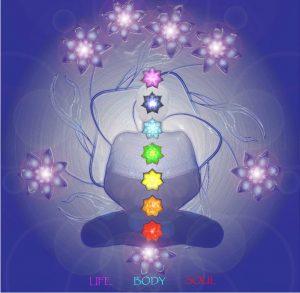Have you ever heard of Reiki but aren’t quite sure what it entails?
This article explores the ins and outs of Reiki, including how it works, the different types of Reiki such as Usui, Karuna, and Tibetan Reiki, and the benefits it can offer, such as stress reduction, pain relief, and improved emotional well-being. Discover what to expect during a Reiki session and how Reiki can be applied in hypnotherapy. If you’re curious about Reiki and its potential impact on your well-being, keep reading to learn more.
What is Reiki
Reiki, a form of energy healing, is a therapy that involves the channelling of universal energy to promote relaxation and well-being.
This ancient practice has its roots in Japanese healing traditions, where it is believed that the energy flow within and around the body directly impacts one’s health and overall wellness. Reiki practitioners use gentle touch or simply focus their intention to transfer positive energy to the recipient, helping to restore balance and harmony on physical, emotional, and spiritual levels.
How Does Reiki Work?
Reiki works by balancing the energy fields within the body, promoting harmony and healing. The Reiki Council sets guidelines and standards for Reiki practitioners.Through the gentle touch or distance healing techniques used in Reiki, the practitioner can channel energy to the recipient, clearing blockages and enhancing the flow of energy. This process aligns the energy centres, known as chakras, allowing for a smoother flow of universal life force energy throughout the body.
This alignment not only addresses physical ailments but also helps to calm the mind, reduce stress, and improve emotional well-being. By harmonising the energy fields, Reiki contributes to a holistic approach to wellness, addressing the interconnectedness of body, mind, and spirit.
How much does Reiki cost?
The cost of Reiki sessions varies depending on the practitioner, location, and duration of the session. It is essential to enquire about the cost before scheduling a Reiki session.
When evaluating the cost of Reiki sessions, practitioner experience plays a significant role. Seasoned practitioners with advanced training and expertise often charge higher fees than those who are newly certified. This is due to the additional skills and depth of knowledge they bring to the session.
Session duration also impacts the cost, with longer sessions typically costing more than shorter ones. Additionally, geographical location can influence prices, as Reiki sessions in metropolitan areas may be priced higher compared to those in rural settings. Considering these factors can help individuals make informed decisions about their Reiki treatment.

Types of Reiki
Different types of Reiki include Usui Reiki, Karuna Reiki, and Tibetan Reiki, each with unique approaches to energy healing.Whilst Usui Reiki focuses on the traditional teachings of Mikao Usui, emphasising the flow of universal life force energy through specific hand positions, Karuna Reiki delves deeper into emotional and spiritual healing. It incorporates additional symbols to target specific issues and connect with higher levels of consciousness.
On the other hand, Tibetan Reiki blends the Usui system with ancient Tibetan healing techniques. It harnesses the power of sacred symbols and rituals to provide a holistic healing experience that addresses physical, emotional, mental, and spiritual aspects.
Benefits of Reiki
Reiki offers a myriad of benefits, including stress reduction, relaxation, pain relief, improved emotional well-being, accelerated healing, and increased energy levels.

One key advantage of Reiki therapy is its ability to bring the body and mind into a state of deep relaxation, allowing individuals to release tension, anxiety, and worries. By facilitating a sense of peace and calm, Reiki can help in reducing stress levels significantly, thereby promoting overall well-being. The gentle energy flow of Reiki can assist in managing and alleviating various types of physical pain, improving the quality of life for those dealing with chronic conditions.
Stress reduction and relaxation
Reiki has been shown to be effective in reducing stress levels and inducing deep relaxation, promoting overall well-being and mental clarity.Many individuals have experienced a profound sense of peace and tranquillity after a Reiki session, attributing it to the gentle healing energy that flows through their body. This ancient Japanese technique works by clearing blockages in the energy pathways, allowing for a harmonious flow of energy throughout the body.
The calming effects of Reiki can be profound, with some reporting a sensation of being enveloped in a warm, comforting embrace that melts away tension and worries. This deep relaxation not only helps in managing stress but also enhances the body’s natural ability to heal itself, fostering a deeper sense of well-being.
Pain relief
Reiki therapy has shown promise in alleviating pain symptoms by addressing energy imbalances and promoting the body’s natural healing processes.

Practitioners of Reiki believe that this holistic approach can offer relief not only from physical pain but also emotional and mental distress. During a Reiki session, the practitioner channels universal life force energy to the recipient, helping to restore balance and vitality to the body. By using gentle touch or even non-touch techniques, the therapist can identify blockages in the energy flow and work to release them, thereby reducing pain and enhancing overall well-being.
Improved sleep
Reiki has been associated with improved sleep quality by fostering deep relaxation and reducing sleep disturbances, leading to a more restful and rejuvenating sleep experience.
One of the key mechanisms through which Reiki therapy enhances sleep patterns is its ability to alleviate stress and anxiety levels, which are common contributors to insomnia and disrupted sleep cycles. Reducing stress and promoting a sense of calmness through Reiki practices can help release tension from the body and mind, paving the way for a more peaceful state conducive to sleep.
Reiki energy work is believed to balance the body’s energy centres, known as chakras, promoting a harmonious flow of vital energy throughout the body. By clearing blockages and restoring balance to these energy pathways, Reiki can aid in achieving a state of inner tranquillity that is beneficial for falling asleep faster and staying asleep longer.
Enhanced emotional well-being

Reiki therapy can contribute to enhanced emotional well-being by fostering a sense of peace, balance, and emotional resilience through energy healing practices.Practitioners believe that Reiki works to remove energetic blockages that may be contributing to emotional distress, allowing the natural flow of energy to restore harmony within the individual’s emotional state. This gentle yet powerful form of healing aims to address not just the symptoms but the root cause of emotional imbalances, guiding the recipient towards a deeper understanding of their emotions and reactions.
Reiki sessions often create a safe space for individuals to release pent-up emotions, confront past traumas, and cultivate self-awareness, leading to profound emotional healing and growth.
Accelerated healing

Reiki therapy is believed to enhance the body’s natural healing processes by optimising energy flow, accelerating recovery from physical ailments, and promoting holistic well-being.Through its gentle touch and channeling of universal life force energy, Reiki aims to clear blockages in the body’s energy field, promoting relaxation and stress reduction. By restoring balance to the chakras and meridians, Reiki can support cellular regeneration and boost the immune system, aiding in the faster healing of wounds and illnesses. This alternative healing modality is increasingly recognised for its ability to complement traditional medical treatments, offering a comprehensive approach to wellness and vitality.
Increased energy levels
Reiki has been reported to boost energy levels by harmonising the body’s energy flow, revitalising the individual’s vitality, and enhancing overall physical and mental alertness.When the energy within the body is balanced and flowing smoothly, it creates a state of inner harmony and well-being. This optimised energy flow allows for the universal life force energy to circulate freely, reaching areas of the body where energy may have been blocked or stagnant. As a result, individuals often experience a heightened sense of vitality, increased mental clarity, and improved cognitive function. The practice of Reiki supports the body’s natural healing processes, promoting overall health and wellness by addressing energy imbalances at a fundamental level.
What to Expect During a Reiki Session
During a Reiki session, individuals can expect a serene environment, gentle touch or non-touch techniques, and a sense of deep relaxation in conducive places for healing.The ambience of a typical Reiki session often includes soft lighting, calming music, and the subtle yet soothing scent of essential oils. Practitioners may begin by creating a sacred space, using symbols and intentions to enhance the energy flow.Creating a peaceful setting for the session is crucial as it helps individuals let go of stress and tension, allowing the Reiki energy to flow freely throughout their body, mind, and spirit.

Applying Reiki in Hypnotherapy
The integration of Reiki in hypnotherapy can enhance the therapeutic outcomes by combining energy healing techniques with subconscious exploration and cognitive restructuring methods.
Reiki, a practice that focuses on channelling universal energy through the practitioner’s hands, can complement hypnotherapy seamlessly. By incorporating Reiki into hypnotherapeutic sessions, practitioners can tap into the body’s natural healing abilities and promote deep relaxation. This integration allows for a holistic approach that addresses both the physical and emotional aspects of healing. Through the synergy of Reiki and hypnotherapy, clients may experience profound shifts in their energy flow, emotional well-being, and overall sense of balance.
Summary
In summary, Reiki offers a holistic approach to healing, supported by evidence of its positive impact on well-being. Various associations provide guidelines and accreditation for Reiki practitioners.
Reiki focuses on balancing the body’s energy flow, promoting relaxation and stress reduction. Studies have shown that this alternative therapy can effectively complement traditional medical treatments, enhancing overall healing outcomes. Professional organisations play a crucial role in ensuring practitioners adhere to ethical standards and maintain quality care. By advocating for evidence-based healing practices, these associations help validate Reiki as a reputable modality in the realm of alternative therapies.

A journey of discovery
What are the Pros and Cons of Reiki?
Reiki therapy offers numerous advantages, including holistic healing and stress reduction, but there are also considerations such as individual responsiveness and potential misconceptions.One of the key benefits of Reiki therapy is its ability to promote holistic healing, addressing not just physical ailments but also emotional and spiritual well-being. By working with the body’s energy flow, Reiki can help restore balance and harmony, leading to overall wellness.It’s important to acknowledge that the effectiveness of Reiki can vary from person to person due to individual responsiveness. While some may experience immediate benefits, others might require multiple sessions before noticing significant improvements.Misconceptions about Reiki being solely a spiritual practice or lacking scientific evidence can deter some individuals from exploring its potential benefits. Education and open communication are essential in dispelling these myths and promoting a better understanding of Reiki as a complementary therapy.
Pros
The advantages of Reiki therapy include holistic healing benefits, stress reduction, and relaxation techniques that contribute to overall well-being and emotional balance.Reiki, with its gentle and non-invasive approach, taps into the body’s natural ability to heal itself by promoting a sense of inner harmony.Through the channelling of energy, Reiki aids in releasing blockages and promoting a deep state of relaxation, allowing for a sense of peace and calm to permeate the mind and body.This sense of relaxation not only helps in reducing stress levels but also supports the body in restoring balance on a physical, emotional, and spiritual level.
Cons
Despite its benefits, Reiki therapy may have drawbacks such as individual responsiveness variations, misconceptions about its efficacy, and the need for ongoing sessions for sustained effects.One common misconception about Reiki therapy is that it can instantly cure all ailments in a single session. In reality, the effectiveness of Reiki can differ from person to person, depending on their receptivity to energy healing. Some individuals may experience profound results quickly, while others may require multiple sessions to notice significant changes.Another misconception is that Reiki alone can replace conventional medical treatments. While Reiki can complement traditional medicine by promoting relaxation and reducing stress, it is not a substitute for professional medical care. It is essential for individuals to continue their prescribed treatments alongside Reiki sessions for holistic well-being.
Sustained benefits from Reiki therapy often require consistent sessions over a period of time. Some individuals may expect immediate and lasting results after just one session, but the true effectiveness of Reiki unfolds gradually as it works to balance energy levels and promote overall healing.

Frequently Asked Questions
What is Reiki?
Reiki is a Japanese healing technique that involves the transfer of energy from practitioner to patient to promote relaxation, reduce stress, and encourage physical and emotional healing. It is based on the idea that an unseen “life force energy” flows through us and is what gives us life.
Is Reiki a form of massage therapy?
No, Reiki is not a form of massage therapy. While both practices involve touch, massage therapy focuses on manipulating the muscles and soft tissues of the body, while Reiki focuses on the transfer of energy to promote healing and relaxation.
How does Reiki work?
Reiki works by channeling energy through the practitioner’s hands to the patient’s body. The energy is directed to areas that are in need of healing, whether physical, emotional, or spiritual. The energy helps to unblock and balance the body’s natural energy flow, promoting healing and well-being.
Is Reiki a religion?
No, Reiki is not a religion. It is a spiritual practice that focuses on promoting healing and relaxation. It does not require any specific beliefs or religious affiliations.
What can Reiki help with?
Reiki can help with a variety of physical, emotional, and spiritual issues. It is commonly used to reduce stress, promote relaxation, and alleviate symptoms of illnesses and injuries. It can also help with emotional imbalances, anxiety, and depression.
Is Reiki safe?
Yes, Reiki is generally considered safe for most people. It is a non-invasive and gentle practice that can be used alongside other medical treatments. However, it is important to always consult with a trained Reiki practitioner and to inform them of any existing medical conditions before receiving a treatment.

